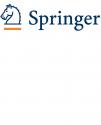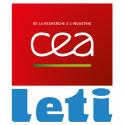7.2 Hot Topic - Trading Accuracy for Efficient Computing
Date: Wednesday 11 March 2015
Time: 14:30 - 16:00
Location / Room: Belle Etoile
Organisers:
Akash Kumar, National University of Singapore, SG
Anand Raghunathan, Purdue University, US
Chair:
Muhammad Shafique, Karlsruhe Institute of Technology, DE
Co-Chair:
Marc Geilen, Eindhoven University of Technology, NL
This session will introduce inexact or approximate computing, a promising direction to improve the efficiency of computing in the face of diminishing benefits from scaling. Speakers will discuss the key challenges in the field and provide a vision for bringing these technologies to the mainstream. The session will cover approximate hardware, system level inexactness, and memory models. An application of the design principles to weather simulation will also be presented.
| Time | Label | Presentation Title Authors |
|---|---|---|
| 14:30 | 7.2.1 | COMPUTING APPROXIMATELY, AND EFFICIENTLY Speakers: Swagath Venkataramani1, Srimat T. Chakradhar2, Kaushik Roy1 and Anand Raghunathan1 1Purdue University, US; 2NEC Laboratories America, US Abstract Recent years have witnessed significant interest in the area of approximate computing. Much of this interest stems from the quest for new sources of computing efficiency in the face of diminishing benefits from technology scaling. We argue that trends in computing workloads will greatly increase the opportunities for approximate computing, describe the vision and key principles that have guided our work in this area, and outline a range of approximate computing techniques that we have developed at all layers of the computing stack, spanning circuits, architecture, and software. Download Paper (PDF; Only available from the DATE venue WiFi) |
| 14:52 | 7.2.2 | NOVEL INEXACTNESS AWARE ALGORITHM CO-DESIGN FOR ENERGY EFFICIENT COMPUTATION Speakers: Guru Prakash Arumugam1, Ayush Bhargava1, Prashanth Srikanthan1, Sreelatha Yenugula1, John Augustine1, Eli Upfal2 and Krishna Palem3 1Indian Institute of Technology Madras, IN; 2Brown University, US; 3Rice University, US Abstract It is increasingly accepted that energy savings can be achieved by trading the accuracy of a computing system for energy gains—quite often significantly. This approach is referred to as inexact or approximate computing. Given that a significant portion of the energy in a modern general purpose processor is spent on moving data to and from storage, and that increasingly data movement contributes significantly to activity during the execution of applications, it is important to be able to develop techniques and methodologies for inexact computing in this context. To accomplish this to its fullest level, it is important to start with algorithmic specifications and alter their intrinsic design to take advantage of inexactness. This calls for a new approach to inexact memory aware algorithm design (IMAD) or co-design. In this paper, we provide the theoretical foundations which include novel models as well as technical results in the form of upper and lower bounds for IMAD in the context of universally understood and canonical problems: variations of sorting, and string matching. Surprisingly, IMAD allowed us to design entirely error-free algorithms while achieving energy gain factors of 1.5 and 5 in the context of sorting and string matching when compared to their traditional (textbook) algorithms. IMAD is also amenable to theoretical analysis and we present several asymptotic bounds on energy gains. Download Paper (PDF; Only available from the DATE venue WiFi) |
| 15:15 | 7.2.3 | DESIGNING INEXACT SYSTEMS EFFICIENTLY USING ELIMINATION HEURISTICS Speakers: Shyamsundar Venkataraman1, Akash Kumar1, Jeremy Schlachter2 and Christian Enz2 1National University of Singapore, SG; 2École Polytechnique Fédérale de Lausanne (EPFL), CH Abstract There are a wide variety of applications that are able to tolerate small errors in the values of the outputs, provided they are within the application-specific thresholds. For such applications, there have been many efforts to study the trade-off involved in the accuracy of the output and the energy/area requirement. However, most of the efforts have been at the level of individual components. In this article, we present a design flow to study the inexactness at the level of system and provide heuristics to quickly explore the design-space under given inexactness and area/energy constraints. The approach is applied to various digital signal processing filters and an ECG application of QRS detection. In both cases, orders of magnitude speed-ups are obtained in the design-flow process. Download Paper (PDF; Only available from the DATE venue WiFi) |
| 15:37 | 7.2.4 | OPPORTUNITIES FOR ENERGY EFFICIENT COMPUTING: A STUDY OF INEXACT GENERAL PURPOSE PROCESSORS FOR HIGH-PERFORMANCE AND BIG-DATA APPLICATIONS Speakers: Peter Duben1, Jeremy Schlachter2, - Parishkrati3, Sreelatha Yenugula3, John Augustine3, Christian Enz2, K. Palem4 and T. N. Palmer5 1Oxford University, GB; 2École Polytechnique Fédérale de Lausanne (EPFL), CH; 3Indian Institute of Technology Madras, IN; 4Rice University, Houston, US; 5University of Oxford, GB Abstract In this paper, we demonstrate that disproportionate gains are possible through a simple devise for injecting inexactness or approximation into the hardware architecture of a computing system with a general purpose template including a complete memory hierarchy. The focus of the study is on energy savings possible through this approach in the context of large and challenging applications. We choose two such from different ends of the computing spectrum—the IGCM model for weather and climate modeling which embodies significant features of a high-performance computing workload, and the ubiquitous PageRank algorithm used in Internet search. In both cases, we are able to show in the affirmative that an inexact system outperforms its exact counterpart in terms of its efficiency quantified through the relative metric of operations per virtual Joule (OPVJ)—a relative metric that is not tied to particular hardware technology. As one example, the IGCM application can be used to achieve savings through inexactness of (almost) a factor of 3 in energy without compromising the quality of the forecast, quantified through the forecast error metric, in a noticeable manner. As another example finding, we show that in the case of PageRank, an inexact system is able to outperform its exact counterpart by close to a factor of 1.5 using the OPVJ metric. Download Paper (PDF; Only available from the DATE venue WiFi) |
| 16:00 | End of session Coffee Break in Exhibition Area Coffee Break in Exhibition AreaOn all conference days (Tuesday to Thursday), coffee and tea will be served during the coffee breaks at the below-mentioned times in the exhibition area. Lunch BreakOn Tuesday and Wednesday, lunch boxes will be served in front of the session room Salle Oisans and in the exhibition area for fully registered delegates (a voucher will be given upon registration on-site). On Thursday, lunch will be served in Room Les Ecrins (for fully registered conference delegates only). Tuesday, March 10, 2015Coffee Break 10:30 - 11:30 Lunch Break 13:00 - 14:30; Keynote session from 13:20 - 14:20 (Room Oisans) sponsored by Mentor Graphics Coffee Break 16:00 - 17:00 Wednesday, March 11, 2015Coffee Break 10:00 - 11:00 Lunch Break 12:30 - 14:30, Keynote lectures from 12:50 - 14:20 (Room Oisans) Coffee Break 16:00 - 17:00 Thursday, March 12, 2015Coffee Break 10:00 - 11:00 Lunch Break 12:30 - 14:00, Keynote lecture from 13:20 - 13:50 Coffee Break 15:30 - 16:00 |









